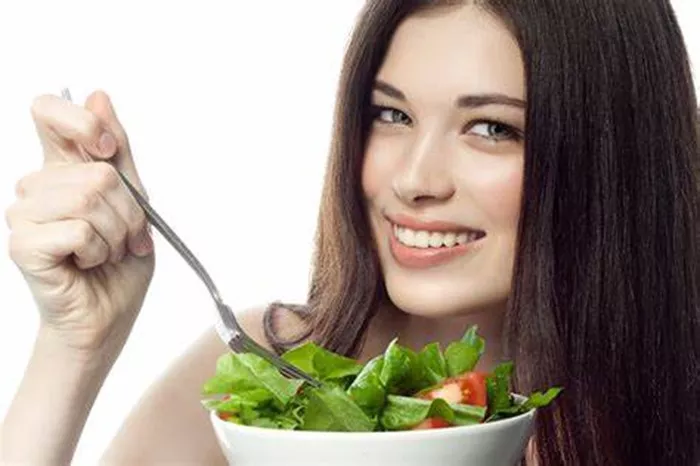Hair health is a reflection of overall well-being, and what you eat plays a crucial role in determining the strength, shine, and resilience of your locks. While genetics and external hair care routines matter, nutrition provides the building blocks for strong, lustrous hair. A diet rich in essential vitamins, minerals, proteins, and healthy fats can prevent hair thinning, breakage, and dullness. Let’s explore the best foods that promote strong hair and why they work.
Protein-Rich Foods for Hair Structure
Hair is primarily made of keratin, a type of protein, which means that consuming adequate protein is non-negotiable for strong strands. Without enough protein, hair becomes weak, brittle, and prone to shedding.
Eggs are one of the best sources of protein and biotin, a B-vitamin essential for hair growth. Biotin helps produce keratin, and a deficiency can lead to hair loss. Eggs also contain zinc and selenium, which support scalp health.
Lean meats, such as chicken and turkey, provide high-quality protein and iron. Iron deficiency is a common cause of hair loss, especially in women. Red meat is another excellent source of iron, but it should be consumed in moderation due to its saturated fat content.
For vegetarians and vegans, legumes like lentils, chickpeas, and beans offer plant-based protein and iron. They also contain zinc and folate, which help in red blood cell production, ensuring that hair follicles receive enough oxygen and nutrients.
Omega-3 Fatty Acids for Scalp Health
A dry, flaky scalp can weaken hair roots and lead to hair fall. Omega-3 fatty acids are healthy fats that nourish the scalp, reduce inflammation, and promote hair density.
Fatty fish, such as salmon, mackerel, and sardines, are rich in omega-3s, protein, and vitamin D. Vitamin D is linked to hair follicle stimulation, and low levels have been associated with alopecia (hair loss).
Chia seeds and flaxseeds are plant-based sources of omega-3s. They also provide fiber and antioxidants, which help combat oxidative stress—a factor that contributes to hair thinning.
Walnuts not only contain omega-3s but also biotin and vitamin E, which protect hair from environmental damage. A handful of walnuts daily can significantly improve hair texture and strength.
Vitamins That Boost Hair Strength
Certain vitamins are particularly important for hair health, including vitamins A, C, D, and E.
Sweet potatoes are packed with beta-carotene, which the body converts into vitamin A. This vitamin promotes sebum production, the natural oil that keeps the scalp moisturized and prevents breakage. However, too much vitamin A can have the opposite effect, so balance is key.
Citrus fruits like oranges, lemons, and grapefruits are high in vitamin C, which aids in collagen production—a protein that strengthens hair. Vitamin C also enhances iron absorption, making it a great companion to iron-rich foods.
Spinach and other leafy greens provide iron, folate, and vitamins A and C. These nutrients work together to keep hair follicles healthy and promote circulation to the scalp.
Avocados are loaded with vitamin E, which improves blood flow to the scalp and supports hair growth. They also contain healthy fats that keep hair moisturized and shiny.
Minerals Essential for Hair Growth
Hair follicles rely on minerals like zinc, selenium, and iron to function optimally. A deficiency in any of these can lead to hair shedding and slow growth.
Oysters are one of the best sources of zinc, a mineral that repairs hair tissues and supports oil gland function around follicles. Even a mild zinc deficiency can trigger hair loss.
Pumpkin seeds are another excellent source of zinc, along with magnesium and healthy fats. Snacking on a small portion daily can help maintain strong hair.
Brazil nuts contain selenium, which protects hair from damage caused by free radicals. Just one or two nuts a day provide enough selenium—overconsumption can be harmful.
Hydration and Hair Health
While not a food, water is fundamental for maintaining hair strength. Dehydration makes hair dry and brittle, leading to split ends and breakage. Drinking enough water ensures that hair stays hydrated from within, improving elasticity and shine.
Herbal teas and water-rich fruits like cucumbers, watermelon, and berries also contribute to hydration while providing additional vitamins and antioxidants.
Foods to Avoid for Stronger Hair
Just as some foods strengthen hair, others can weaken it. Excessive sugar intake can lead to inflammation, which disrupts hair growth cycles. Processed foods high in unhealthy fats may contribute to scalp issues like dandruff. Alcohol dehydrates the body, making hair more prone to damage.
Conclusion
Strong, healthy hair starts from within. By incorporating protein-rich foods, omega-3 fatty acids, essential vitamins, and minerals into your diet, you can significantly improve hair strength and reduce breakage. A balanced diet, combined with proper hydration and minimal intake of damaging foods, will ensure that your hair remains vibrant and resilient. Remember, consistency is key—nutritional benefits for hair take time, but the results are worth the effort.
Would you like personalized recommendations based on your hair type or concerns? Consulting a nutritionist or dermatologist can help tailor a diet plan for optimal hair health.
Related Topics:
Which Oil Stimulates New Hair Growth?
Which Organic Shampoo Is Best?
Which Lavender Oil Is Best for Hair?


